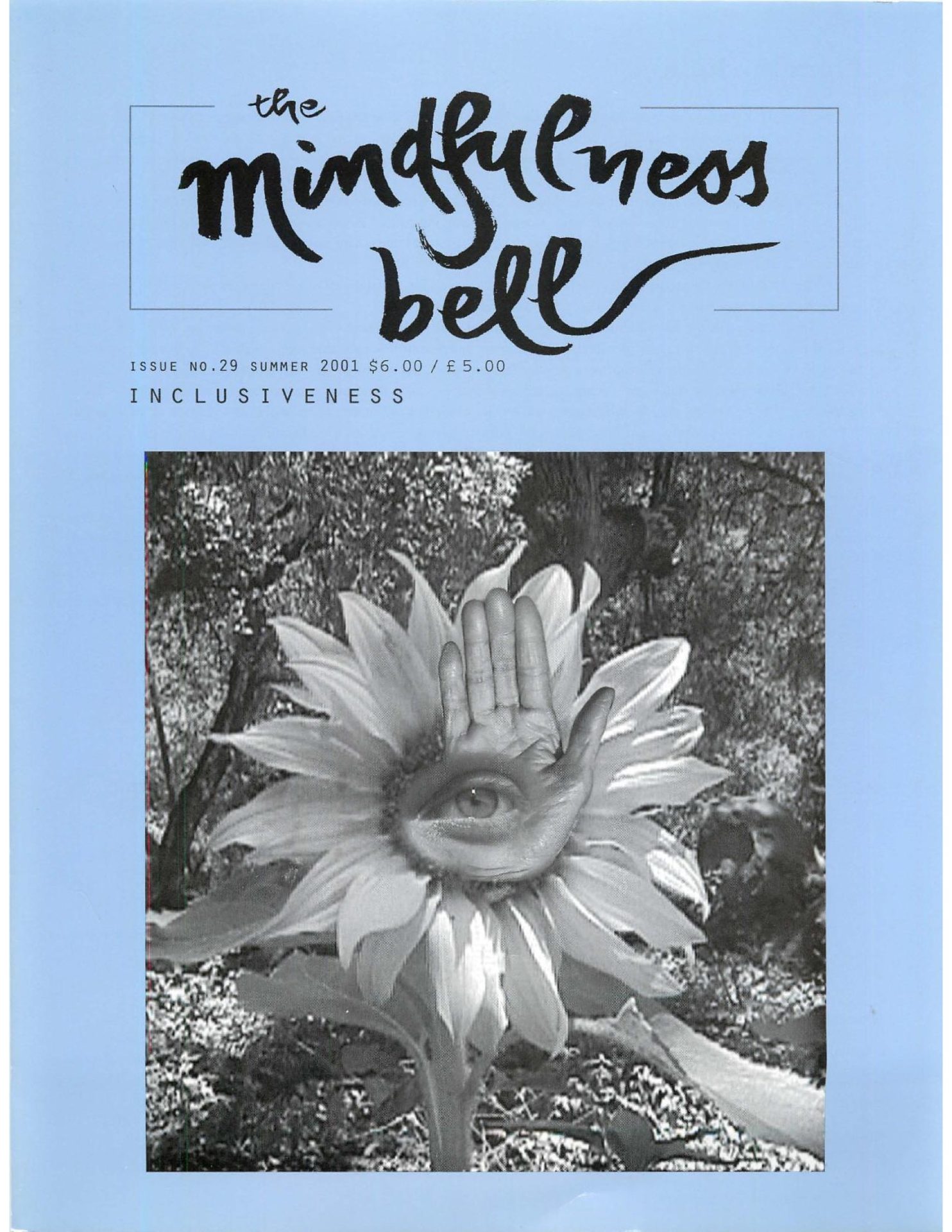By Lorena Monda
My greatest teacher of letting others be themselves has been my daughter, Lisa. Watching her become herself has been a delight to me over the years. I have approached each stage of her development, even the difficult ones, with curiosity. When I have faltered in this, she has always let me know. Even in our conflicts, I have seldom assigned devious, undeserved motives to her behavior. My deep love for her has allowed me to practice letting her be herself more easily than with anyone else.
By Lorena Monda
My greatest teacher of letting others be themselves has been my daughter, Lisa. Watching her become herself has been a delight to me over the years. I have approached each stage of her development, even the difficult ones, with curiosity. When I have faltered in this, she has always let me know. Even in our conflicts, I have seldom assigned devious, undeserved motives to her behavior. My deep love for her has allowed me to practice letting her be herself more easily than with anyone else.
Somehow, I had different expectations for a partner. When I entered into my relationship with my partner, John, I discovered I had to practice letting him be himself. I was pretty good at letting myself be myself; I had practiced that for years. But I was inept at letting John be himself, despite the fact that I knew how to let others be themselves through my experiences with my clients and students. I knew I had it in me, yet seemed to have difficulty practicing this with John.
Early in our relationship, we had terrible fights because I felt that he was not in touch with his feelings, or not dealing with something I thought important. Instead ofletting him know what I needed, I became angry with him for doing things differently than I did.
Over time, I learned that he is sincere in his commitment to our relationship, but that he is not like me. His way of dealing with things is different; his timing is different; his methods are different. For example, when I brooded over some difficulty between us, he often asked me to take a walk. I discovered that if, instead of accusing him of not dealing with the problem, I went with him, I felt much better afterward and was more able to clearly see what was bothering me. I now trust John's values and realize him to be a good person. I know he wants many of the same important things I do from life. I know we are in this together.
Our ability to be true to ourselves and different from someone else while still remaining connected creates a paradox, one that generates great freedom. Many of us believe that to have connection with someone else we have to be the same. This attitude limits us in relationships, because each person is unique: We are not the same as anyone else.
Many relationship fights are about the struggle for each member of the couple to be themselves. In these struggles, we often look at the other person as the enemy. Many of the worst struggles take place when we have similar longings but different methods. In my own relationship, I have had to learn to give John the space to experience his feelings; while many of mine are immediately available, his take time to percolate up through his consciousness. I have learned to observe his steadfastness and solidity. He has learned to not be so overwhelmed by my reactivity - which had helped me calm down, and call on other resources. John has learned to appreciate my passion, and I have learned to love his patience.
When we first meet someone we like, or when we fall in love, we are willing and able to let the other person be themselves. We are curious about the other person and we want to get to know him or her. We may see some limitations but are willing to overlook them, because we see the appealing characteristics.
Later in the relationship, we may become more critical of the other person's limitations. We see these flaws as harmful to us. While some characteristics really are harmful, here I refer to how we surrender ourselves to the other person's limitations, blaming our unhappiness on him or her. This creates conflict because we expect the other person to change to make us happy. Because he or she can't or won't change, especially without our compassion, we make the other person the enemy.
When we see the limitations of others, we can then offer them our compassion instead of our fury. When we see another person clearly, we are more able to decide what kind of relationship to have with him or her, and make better relationship choices. Had I known how to let others be themselves in the past, I could have saved myself from some heartbreaking relationships. My partners were telling me, through their actions, that they could not give me what I wanted. Yet, I did not believe them because I was fixated on my relationship dream rather than on the person who was actually before me. If I had been able to see them clearly as themselves, I would never have asked them to give me what they could not.
When our habit is to make the other person the enemy during conflicts, we miss what is really going on; we miss the gifts of our differences. Ifwe practice letting others be themselves, we can see them as they truly are-with their gifts and limitations. The practice of letting others be themselves while being true to ourselves helps us expand into compassion and true love.
Excerpted from Lorena's book, The Practice of Wholeness: Spiritual Transformation in Everyday Life.
Lorena Monda, True Perfect Way, practices with the Mindful Heart Sangha in Placitas, New Mexico.

